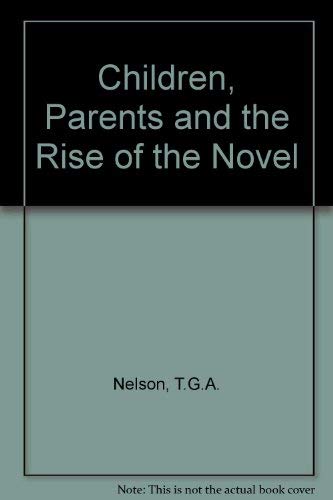

 |

|

Sold Out
Book Categories |
In Children, Parents, and the Rise of the Novel, T. G. A. Nelson challenges the views of literary critics who contend that the child held little importance as a theme of imaginative literature in the first half of the eighteenth century. Nelson's work follows thirty years of intense discussion of children and childhood by social historians, most of whom see the first half of the eighteenth century as a time of momentous change. In Restoration comedy, for example, the child is a signifier of unwanted burdens that may fall on the parents: wit and cunning are expended in transferring responsibility for children to convenient dupes. However, in the early novel, in periodical literature, and in other discourses of concern, the comic, dismissive response toward children is increasingly marginalized and subjected to negative criticism, especially when attributed to wealthy or socially distinguished characters. In traditional comedy, rejection of children characterized the carefree rake, who, though satirized at times, was generally projected as an embodiment of the life-force. In the new writing, rejection of children is firmly associated with frigidity, especially among the rich, not with life-giving energy. Recent writers on the eighteenth-century novel have overstressed elements of covert hostility toward wives and children. This seems partly due to their own ideological rejection of the family and partly to their misunderstanding of the nature of fictional and dramatic narrative. Such narrative is unsuited to figurations of domestic peace and harmony; often it is in situations of domestic discord that the child figure becomes most active and significant in the world of the novel, but this does not mean that the novelists continued to present the child or the family negatively, as earlier dramatists had done. Overall, the child in eighteenth-century fiction is not merely more prominent than has been generally recognized, but is identifiable as a signifier of hope,
Login|Complaints|Blog|Games|Digital Media|Souls|Obituary|Contact Us|FAQ
CAN'T FIND WHAT YOU'RE LOOKING FOR? CLICK HERE!!! X
 You must be logged in to add to WishlistX
 This item is in your Wish ListX
 This item is in your CollectionChildren, parents, and the rise of the novel
X
 This Item is in Your InventoryChildren, parents, and the rise of the novel
X
 You must be logged in to review the productsX
 X
 X

Add Children, parents, and the rise of the novel, , Children, parents, and the rise of the novel to the inventory that you are selling on WonderClubX
 X

Add Children, parents, and the rise of the novel, , Children, parents, and the rise of the novel to your collection on WonderClub |